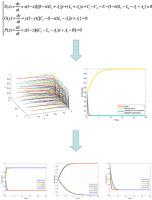Ocean & Coastal Management ( IF 4.8 ) Pub Date : 2021-09-25 , DOI: 10.1016/j.ocecoaman.2021.105896 Jiaguo Liu 1 , Xiaoye Wang 1 , Zhijia Tan 1 , Jihong Chen 2

|
Japan's decision to discharge nuclear wastewater into the sea on April 13, 2021 has aroused worldwide discussions recently. This paper establishes a tripartite evolutionary game model to explore the evolutionary stable strategies (ESSs) of Japan, other countries, and international environmental protection organization (IEPO). The results show: i) The choice of Japan is closely related to the treatment cost of nuclear wastewater. When Japan chooses the non-discharge strategy, other countries will always choose the acceptance strategy, while IEPO will trade off between its credibility and international assistance. When Japan chooses the discharge strategy, the choice of other countries depends on the difference of litigation compensation and cost, while that of IEPO is determined by the comparison of the litigation compensation and credibility with the litigation cost. ii) The treatment cost of nuclear wastewater, negative externalities of marine environment, litigation compensation, international assistance from IEPO, and the proximity coefficient between Japan and other countries are critical factors influencing both evolutionary results and trajectories, while the international assistance from other countries and initial willingness only affect evolutionary trajectories. This paper also puts forward policy implications for the three stakeholders to promote Japan's non-discharge strategy so as to protect the marine environment and human health from the unprecedented damage.
中文翻译:

日本核废水排放的三方演化博弈分析
日本决定于 2021 年 4 月 13 日将核废水排放入海,最近引起了全球的讨论。本文建立了三方演化博弈模型,探讨了日本、其他国家和国际环保组织(IEPO)的演化稳定策略(ESSs)。结果表明:i)日本的选择与核废水的处理成本密切相关。当日本选择不排放战略时,其他国家总是会选择接受战略,而IEPO则在其公信力和国际援助之间进行权衡。日本选择解除策略时,其他国家的选择取决于诉讼赔偿和成本的差异,而IEPO的则是通过诉讼赔偿和可信度与诉讼成本的比较来确定的。ii) 核废水的处理成本、海洋环境的负外部性、诉讼赔偿、IEPO 的国际援助以及日本与其他国家的邻近系数是影响演化结果和轨迹的关键因素,而其他国家的国际援助和初始意愿只影响进化轨迹。本文还就推动日本无排放战略以保护海洋环境和人类健康免受前所未有的破坏的三个利益相关者提出了政策启示。海洋环境负外部性、诉讼赔偿、IEPO的国际援助、日本与其他国家的邻近系数是影响演化结果和轨迹的关键因素,而其他国家的国际援助和初始意愿只影响演化轨迹。本文还就推动日本无排放战略以保护海洋环境和人类健康免受前所未有的破坏的三个利益相关者提出了政策启示。海洋环境负外部性、诉讼赔偿、IEPO的国际援助、日本与其他国家的邻近系数是影响演化结果和轨迹的关键因素,而其他国家的国际援助和初始意愿只影响演化轨迹。本文还就推动日本无排放战略以保护海洋环境和人类健康免受前所未有的破坏的三个利益相关者提出了政策启示。而其他国家的国际援助和最初的意愿只会影响进化轨迹。本文还就推动日本无排放战略以保护海洋环境和人类健康免受前所未有的破坏的三个利益相关者提出了政策启示。而其他国家的国际援助和最初的意愿只会影响进化轨迹。本文还就推动日本无排放战略以保护海洋环境和人类健康免受前所未有的破坏的三个利益相关者提出了政策启示。










































 京公网安备 11010802027423号
京公网安备 11010802027423号